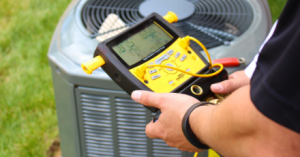Water Heater Services & Maintenance by Bay Area Plumbing Pros
Water Heater Services: Ensuring Efficiency and Reliability
Water heaters are an essential component of any household, providing hot water for various daily activities such as bathing, cooking, and cleaning. To ensure their longevity and optimal performance, regular water heater maintenance is crucial. This article will delve into the importance of regular water heater maintenance, common problems and solutions, signs indicating the need for a replacement, and tips for choosing the right water heater for your home.
Importance of Regular Water Heater Maintenance
Regular maintenance of your water heater is vital to ensure its efficiency, longevity, and safety. Neglecting maintenance can lead to a range of issues, including reduced efficiency, increased energy consumption, and even potential safety hazards. By scheduling regular maintenance, you can prevent these problems and save money in the long run.
One of the primary benefits of regular maintenance is improved efficiency. Over time, sediment and mineral deposits can accumulate in the tank, reducing its heating capacity and efficiency. This buildup forces the water heater to work harder and consume more energy to heat the water. By flushing the tank and removing these deposits, you can restore the heater’s efficiency and reduce energy consumption, resulting in lower utility bills.
Regular maintenance also helps identify and address potential issues before they escalate into major problems. A professional technician can inspect the various components of the water heater, such as the heating elements, thermostat, and pressure relief valve, to ensure they are functioning correctly. Identifying and fixing minor issues early on can prevent costly repairs or even the need for a complete replacement.
Common Water Heater Problems and Solutions
Despite regular maintenance, water heaters can still encounter problems. Some common issues include inadequate hot water, strange noises, leaks, and foul-smelling water. Fortunately, most of these problems have simple solutions.
Inadequate hot water can be caused by a variety of factors, such as a faulty thermostat, a broken heating element, or a buildup of sediment in the tank. A professional technician can diagnose the issue and recommend the appropriate solution, which may involve replacing the faulty component or flushing the tank to remove sediment.
Strange noises coming from the water heater can be a sign of sediment buildup or a failing heating element. Flushing the tank can often resolve this issue, but if the noises persist, it may be necessary to replace the heating element.
Leaks are another common problem that should not be ignored. Leaks can occur due to a faulty pressure relief valve, a cracked tank, or loose connections. It is crucial to address leaks promptly to prevent water damage and potential safety hazards. A professional technician can identify the source of the leak and take the necessary steps to fix it.
Foul-smelling water is often caused by bacteria growth in the tank. Flushing the tank and disinfecting it with a hydrogen peroxide solution can eliminate the bacteria and eliminate the odor.
Signs You Need to Replace Your Water Heater
While regular maintenance can extend the lifespan of your water heater, there will come a time when a replacement is necessary. Some signs that indicate the need for a new water heater include frequent repairs, old age, and a significant decrease in efficiency.
If you find yourself constantly calling for repairs or experiencing recurring issues with your water heater, it may be more cost-effective to invest in a new unit. Older water heaters, typically over 10 years old, are also more prone to breakdowns and inefficiency. In such cases, replacing the unit can save you money on repairs and reduce energy consumption.
A significant decrease in efficiency, resulting in higher energy bills, is another sign that your water heater may need to be replaced. As water heaters age, they become less efficient at heating water, leading to increased energy consumption. Upgrading to a newer, more energy-efficient model can help you save on utility costs in the long run.
Choosing the Right Water Heater for Your Home
When it comes to selecting a water heater for your home, several factors need to be considered, including the size of your household, available space, energy source, and budget.
The size of your household plays a crucial role in determining the capacity of the water heater you need. A larger household will require a water heater with a higher gallon capacity to ensure an adequate supply of hot water for everyone. On the other hand, a smaller household can opt for a smaller capacity unit to save on energy costs.
The available space in your home will also influence your choice of water heater. Traditional tank water heaters require a significant amount of space, whereas tankless water heaters are more compact and can be mounted on walls, saving valuable floor space.
The energy source for your water heater is another important consideration. Common options include electric, gas, and solar-powered water heaters. Each has its advantages and disadvantages in terms of cost, efficiency, and environmental impact. Researching and comparing the different options will help you make an informed decision.
Lastly, your budget will play a significant role in determining the type and quality of water heater you can afford. While it may be tempting to opt for a cheaper model, it is essential to consider the long-term costs and benefits. Investing in a higher-quality, energy-efficient water heater may initially be more expensive but can result in significant savings on energy bills over time.
In conclusion, regular water heater maintenance is crucial for ensuring efficiency, longevity, and safety. By addressing common problems promptly and scheduling regular maintenance, you can prevent costly repairs and extend the lifespan of your water heater. Additionally, knowing the signs that indicate the need for a replacement and choosing the right water heater for your home will help you make informed decisions and ensure a reliable supply of hot water for years to come.



